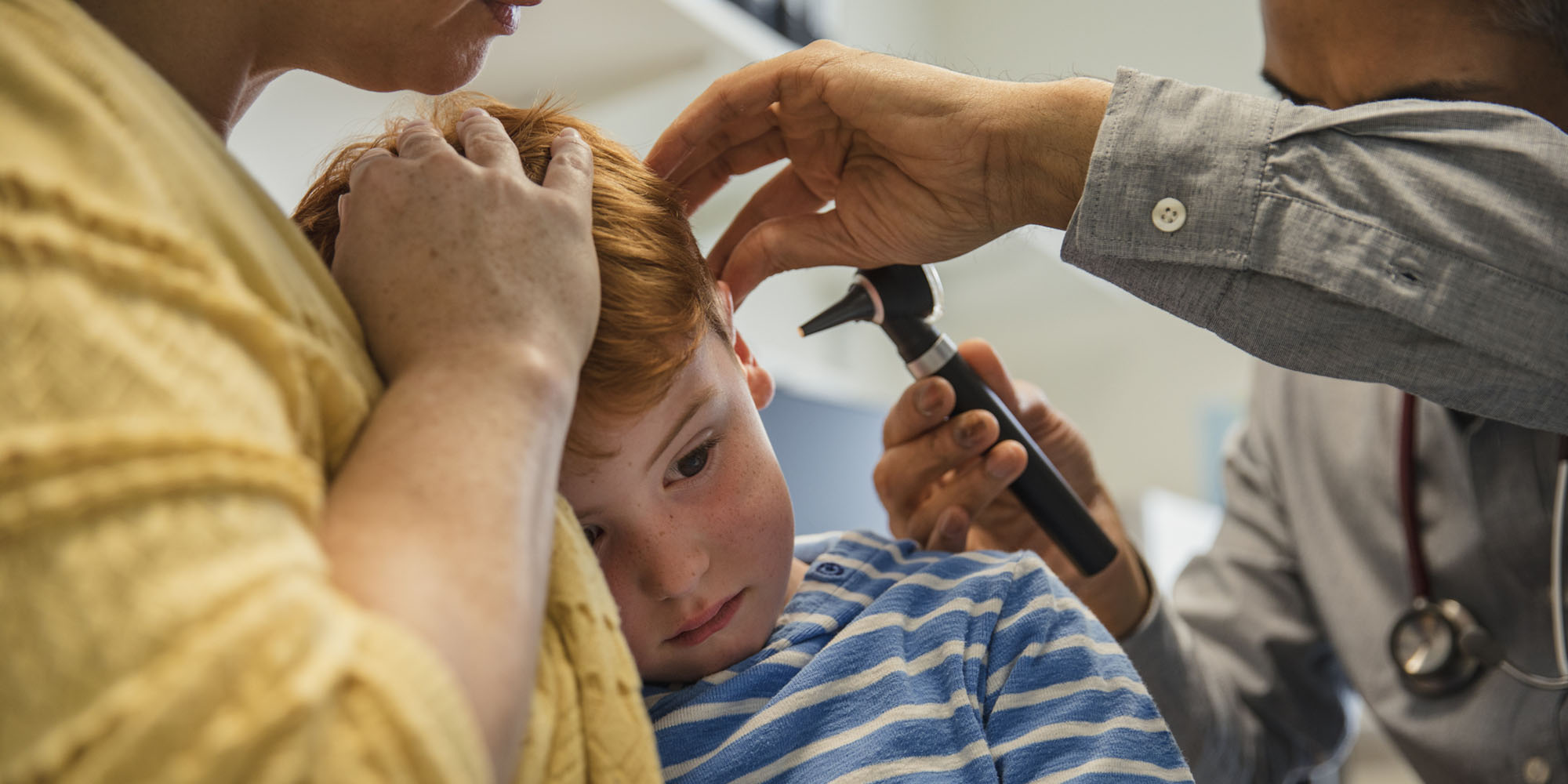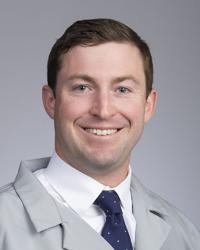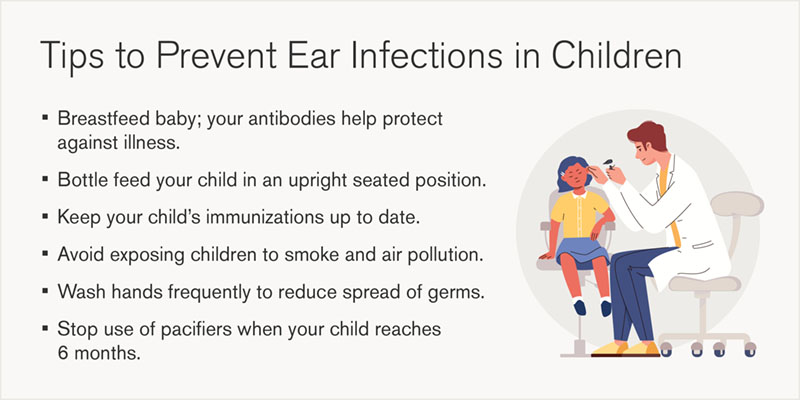How Ear Infections Can Affect Your Child's Learning Development
April 2, 2024
Categories: Pediatrics, ENT/Otolaryngology

Ear infections in infants and toddlers are extremely common. Most children will experience at least one ear infection before turning two years old. Because of how common the condition is, one ear infection should not be a cause of concern for parents; a simple trip to the doctor is all that's needed. However, frequent and recurring ear infections and/or fluid buildup can lead to long-term complications.
Loyola Medicine otolaryngologist Richard Hubbell, MD has clinical expertise in many conditions related to the ear, nose and throat. "Both ear infections and fluid buildup can be associated with decreased hearing, balance issues, and general discomfort," he says.
Ear infections in children explained
There is a difference between an ear infection and fluid build up (although fluid can be the result of a recent infection). When an infection develops behind the eardrum, children often experience pain, fever and decreased hearing. After the infection resolves, fluid may remain and continue to cause symptoms. While both of these conditions are termed otitis media, an infection is distinguished by the addition of the term "suppurative" which means pus is present.
Signs and symptoms of ear infections
The most common symptom of an ear infection is pain within and around the ear. For infants and toddlers not yet able to speak, conveying ear pain is often difficult. Because of this, parents with young children should be aware of the signs and symptoms of an ear infection and fluid buildup, which often overlap, including:
- Fever
- Ear discharge
- Decreased hearing
- Balance issues
- Excessive crying and fidgeting
- Grabbing at or frequently touching the ear.
Long-term consequences of recurring ear infections
The most common age for children to experience an ear infection is between 6 and 18 months old. This is also the most critical period of language development, where a child starts recognizing speech sounds and learning how to connect those sounds to meanings. Since fluctuating hearing loss can occur during ear infections or fluid buildup, recurring cases can interrupt language learning and speech development in the long term.
"Fluid in the ear or recurrent ear infections can affect your hearing and therefore your ability to learn anything, including reading, language development or socialization with your peers," says Dr. Hubbell. "While, in the short term, small hearing changes probably won't have huge consequences, a small daily loss adds up over time."
"This is why at a certain period of time when fluid persists, we recommend things like ear tubes to help drain the fluid and prevent it from collecting again.
How to prevent ear infections in children
Children get sick much more frequently than adults because their immune system has not been exposed to as many infections.
"Especially in this post-COVID time when children were maybe kept away from other children for a while, they are getting sick even more frequently than they used to because they're seeing all the same number of infections but in a condensed period of time," says Dr. Hubbell.
"If you suspect your child of having an ear infection, they should be seen by their primary doctor," says Dr. Hubbell. "Recurrent recurrent ear infections and fluid in the ear that doesn't go away after around three months should also be evaluated by an ENT."

ENT care at Loyola Medicine
Loyola Medicine is recognized for its expert, clinically integrated team for otolaryngology – head and neck surgery.
With extensive experience and national recognition for expertise in diagnosing, treating and managing a broad range of ear, nose and throat conditions, we are committed to upholding our team’s mission of providing the best clinical care, education and research. Our ENT team is ready to help no matter your condition, including ear infections in your child.
Loyola primary and specialty care offices are conveniently located throughout Chicago’s western and southwestern suburbs. To make an appointment, call 888-584-7888 or schedule an appointment online.
Richard Hubbell, MD is a otolaryngologist at Loyola Medicine. Dr. Hubbell received his medical degree from Loyola University of Chicago - Stritch School of Medicine before completing his residency at Boston Medical Center and then his fellowship at University of Iowa Hospitals & Clinics.
Dr. Hubbell specializes in treating ear, nose and throat conditions for both adults and children, with his clinical expertise including such conditions as deviated septums, nasal surgeries, tonsillectomies, excessive salivation and supraglottoplasties.
Book an appointment today to see Dr. Hubbell or another Loyola otolaryngologist by self-scheduling an in-person or virtual appointment using myLoyola.
